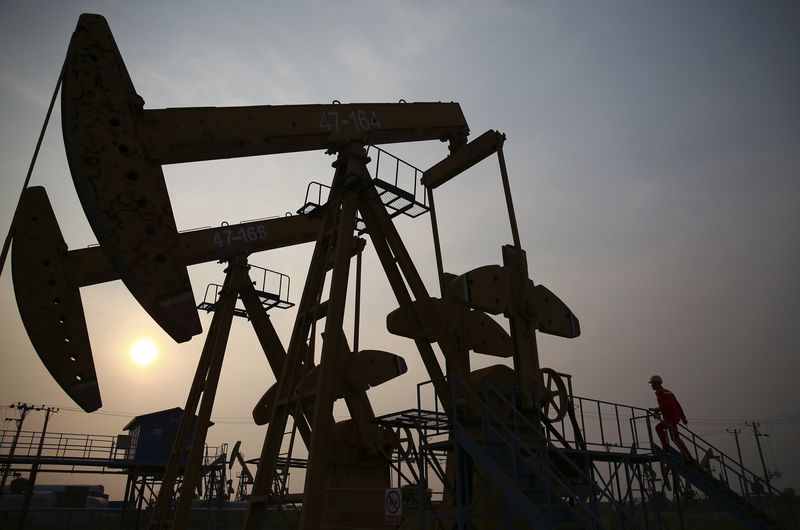By Peter Nurse
Investing.com -- Crude oil prices edged lower Thursday, pulling back from the 13-month highs which followed last week’s winter storm that disrupted production in Texas, the biggest energy producing state in the U.S.
By 9:45 AM ET (1445 GMT), U.S. crude futures traded 0.3% lower at $63.03 a barrel, while the international benchmark Brent contract fell 0.3% to $65.97.
Both contracts hit their highest since Jan. 8, 2020, earlier in the session with Brent at $66.81 and WTI at $63.79.
Gasoline RBOB futures were down 0.8% at $1.9623 a gallon.
The unprecedented cold snap in Texas caused U.S. crude production to drop by more than 10%, or 1 million barrels per day last week, the Energy Information Administration said on Wednesday.
U.S. energy firms last week cut the number of oil rigs operating for the first time since November.
This prompted Barclays to raise its oil price forecasts for 2021 Thursday, and the bank now sees Brent at $62 a barrel, up $7, and West Texas Intermediate $6 higher at $58 a barrel.
"Colder-than-normal weather, especially in the southern states, has accelerated the normalization in inventories by disrupting output more than demand," the bank said, in a research note.
The EIA reported that there was a build of 1.285 million barrels in the U.S. crude oil inventories last week, while forecasts had predicted a 5.190-million-barrel draw.
“Looking ahead, given that crude oil production has made a fairly quick recovery, whilst refinery capacity is expected to take longer to return to normal, we should see further crude oil builds in the weeks ahead,” said analysts at ING, in a research note.
Taking a broader look, the Organization of the Petroleum Exporting Countries and their allies including Russia, a group known as OPEC+, is due to meet on March 4.
The group is likely to discuss an easing of oil supply curbs from April given the recovery in prices, although this could provoke differences between the two leaders of the alliance, Saudi Arabia and Russia.
Earlier this month Russian Deputy Prime Minister Alexander Novak said that the global oil market was balanced and the current price of oil fully reflected this market situation. However, this perceived balance has been created by Saudi Arabia undertaking extra voluntary cuts in February and March.
